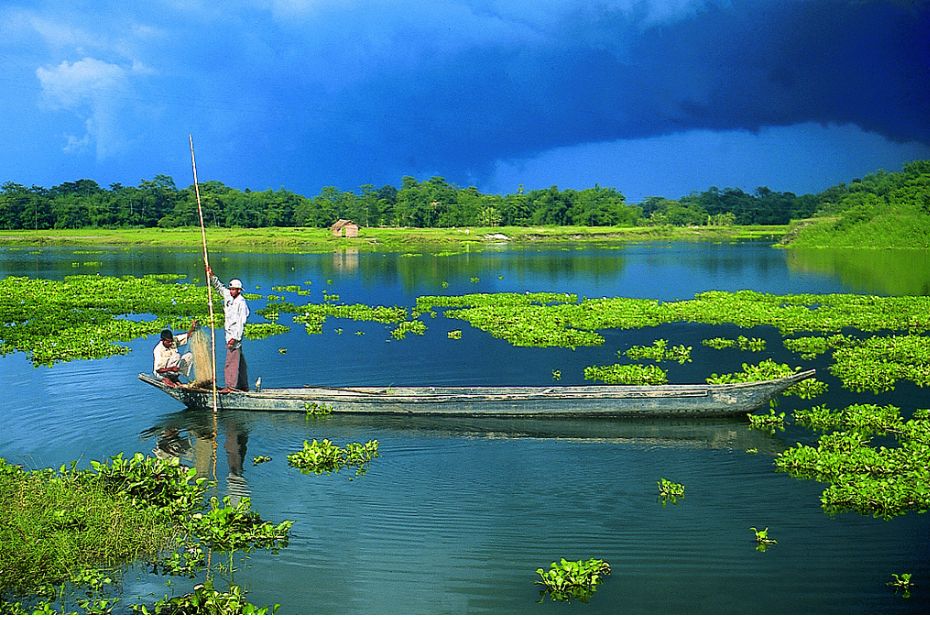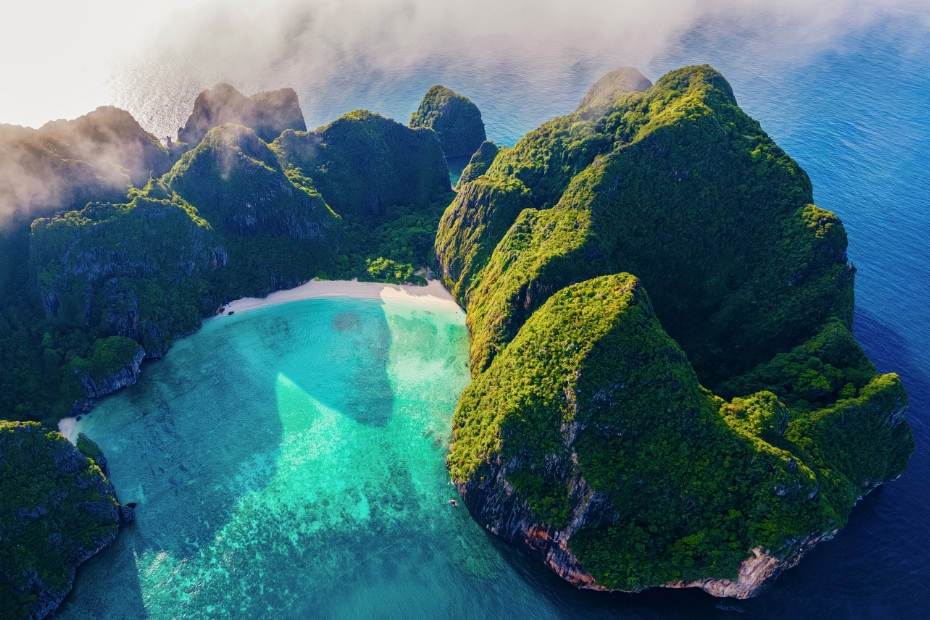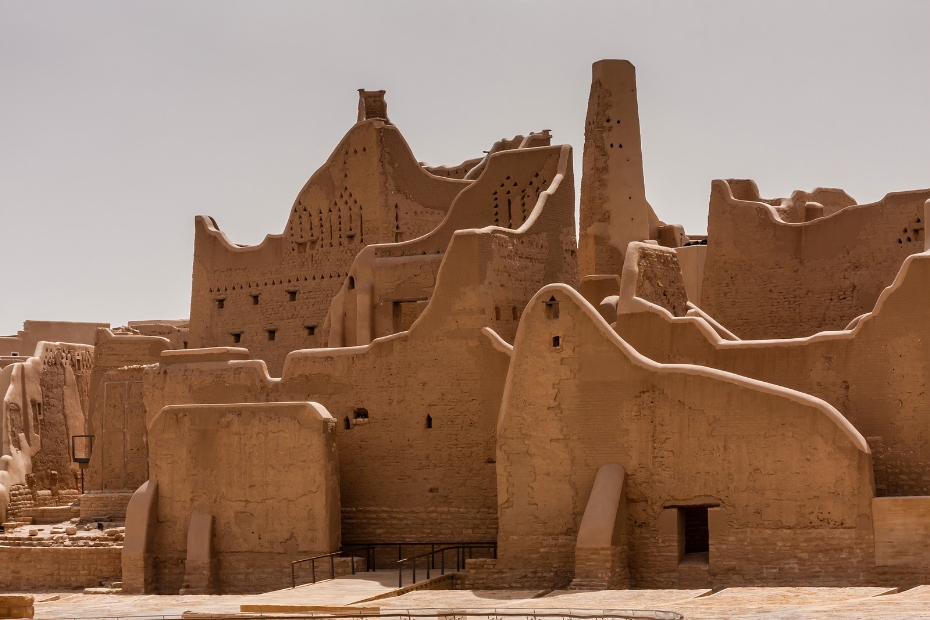Explore the unique charm of Majuli, the world’s largest river island, and witness its rich cultural and natural heritage. Discover traditional handloom weaving, the Sattra system, and ecotourism activities.
Majuli, the world’s largest river island in the Brahmaputra River in the northeastern Indian state of Assam, is a unique and beautiful destination that offers a glimpse into the rich cultural heritage and outstanding flora and fauna of the region. This post will discuss the history, culture, challenges, efforts to preserve the island, and tourist attractions.
Majuli Island History
The history of Majuli can be traced back to the 16th century when the revered saint and social reformer, Srimanta Sankardeva, established a monastic order on the island. The Sattra system was based on the principles of Bhakti, or devotion, and emphasized the importance of music, dance, and literature in spiritual development. The Sattra system became the epicenter of Assamese culture and traditions.
The island remained relatively isolated until the British arrived in the 19th century. The British recognized the strategic importance of the Brahmaputra River and established several trading posts along the river. Majuli became a center of trade and commerce, and several British merchants settled on the island.
Culture at Majuli
Majuli is known for its rich cultural heritage, deeply rooted in the Sattra system. The Sattra system was instrumental in preserving and promoting Assamese culture and traditions. The Sattra system served as an educational center for the people of Assam, where they could learn about religion, music, dance, and literature.
Majuli is home to several Sattras, each with unique music, dance, and literature styles. The most famous Sattra on the island is the Kamalabari Sattra, known for its mesmerizing Sattriya dance. The Sattriya dance is a form of classical dance that originated in the Sattra system and is recognized as one of the eight classical dances of India.
Besides the Sattra system, Majuli is known for its traditional handloom weaving. The island has several weavers who create beautiful silk and cotton fabrics using traditional techniques. The handloom weaving industry has been a vital source of income for the people of Majuli and has played a significant role in preserving the island’s cultural heritage.
Challenges with Majuli River Island
Majuli is facing several challenges, including erosion caused by the Brahmaputra River, deforestation, and climate change. Over the years, the island has lost a significant portion of its landmass, and the local communities need help to cope with these changes.
The erosion of the island’s landmass has been exacerbated by human activities such as sand mining and dam construction. The erosion has displaced several communities, and the island’s infrastructure has been severely affected.
Deforestation is another major challenge facing Majuli. The island is home to several forests rich in biodiversity, but they are being cleared at an alarming speed to make way for agriculture and infrastructure development. Deforestation has led to soil erosion and habitat loss for several species of flora and fauna.
Climate change is also a significant challenge facing Majuli. The island is prone to floods, and climate change has resulted in more frequent and severe floods. The floods have displaced several communities, and the island’s infrastructure has been severely affected.
Efforts to Preserve Majuli River Island
Efforts are being made to preserve the island’s cultural and natural heritage, including promoting sustainable tourism and implementing conservation measures.
The government of Assam has recognized the importance of Majuli and has taken several steps to preserve the island’s cultural and natural heritage. In 2016, the government of Assam declared Majuli a district, recognizing its unique cultural and natural heritage. The government has also established a committee to monitor the erosion of the island’s landmass and to implement measures to mitigate the effects of corrosion.
To promote sustainable tourism, the government of Assam has established several ecotourism projects on the island. These ecotourism projects promote responsible tourism and preserve the island’s natural heritage. The tourism development board works with local communities to promote cultural heritage and create sustainable tourism opportunities.
Conservation measures are also being implemented to preserve the island’s unique flora and fauna. The government of Assam has established several protected areas on the island to preserve its forests and wildlife.
The protected areas are home to several species of migratory birds, including the Greater Adjutant Stork, an endangered species. The government also works with local communities to promote sustainable forestry and preserve the island’s traditional handloom weaving industry.
Ecotourism at Majuli Island
Majuli is a unique destination offering a range of tourist attractions. First, visitors can explore the Sattra system, the Assamese culture, and traditions epicenter. There are several Sattras on the island, each with unique music, dance, and literature styles. Visitors can witness the mesmerizing Sattriya dance, a form of classical dance that originated in the Sattra system.
Visitors can also experience the traditional handloom weaving industry on the island. The handloom weaving industry is a vital source of income for the people of Majuli and has played a significant role in preserving the island’s cultural heritage. Visitors can see the weavers and even purchase beautiful silk and cotton fabrics.
For nature lovers, Majuli offers a unique opportunity to witness the rich biodiversity of the Brahmaputra River. The island is home to several species of migratory birds, including the Greater Adjutant Stork, an endangered species. Visitors can explore the protected areas on the island to witness the unique flora and fauna of the region.
Majuli is also an excellent destination for ecotourism. Visitors can participate in ecotourism activities such as nature walks, bird watching, and cultural tours. The ecotourism projects promote responsible tourism and preserve the island’s natural heritage.
One of the best times to visit Majuli is during the Majuli Festival in November every year. The festival celebrates Assamese culture and traditions and is a unique opportunity to witness the island’s charm. Visitors can see traditional music, dance, handicrafts and even participate in cultural activities.
Accommodation options on the island are limited, but several guest houses and homestays offer a unique experience. Visitors can stay with local families and experience the warm hospitality of the people of Majuli. The food on the island is delicious and authentic, with a variety of traditional dishes.
However, visitors should know that Majuli faces several challenges, including erosion, deforestation, and climate change. Practicing responsible tourism and respecting the island’s natural and cultural heritage is essential. Visitors should avoid activities that harm the environment or the local communities.
How to Reach Majuli River Island
To reach Majuli river island, you must first travel to Jorhat in Assam, India. Jorhat is well-connected by air, rail, and road to major cities in India.
From Jorhat, you can take a ferry or a motorboat to Majuli island. The ferry and motorboat services operate from Nimati Ghat, about 14 km from Jorhat city. You can hire a taxi or an auto-rickshaw to reach Nimati Ghat from Jorhat.
The ferry ride from Nimati Ghat to Majuli island takes about two hours, and the motorboat ride takes about an hour. The ferry service operates from 7:00 am to 3:00 pm, and the motorboat service operates from 8:00 am to 4:00 pm. It’s advisable to check the ferry and motorboat schedules in advance and plan your trip accordingly.
Conclusion
Majuli is a unique and beautiful river island rich in cultural and natural heritage. The island has been vital in preserving and promoting Assamese culture and traditions. However, Majuli faces several challenges, including erosion, deforestation, and climate change.
Efforts are being made to preserve the island’s cultural and natural heritage, including promoting sustainable tourism and implementing conservation measures. Tourists can explore the Sattra system, witness traditional handloom weaving, and experience the rich biodiversity of the Brahmaputra River. The island is also an excellent destination for ecotourism and is home to the famous Majuli Festival. Visitors should practice sustainable travel practices. Enjoy your trip!



